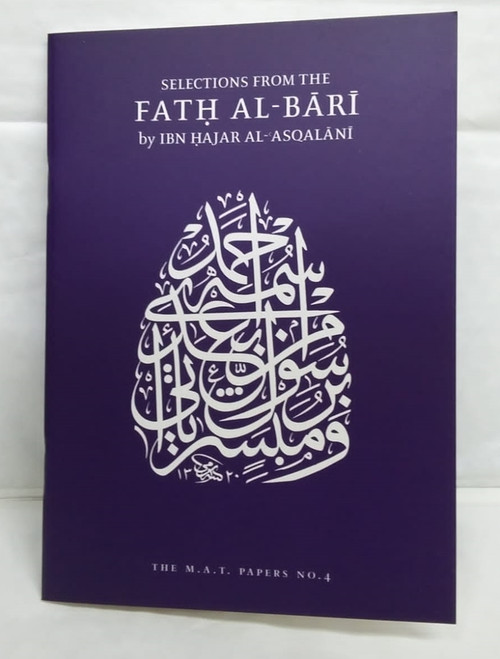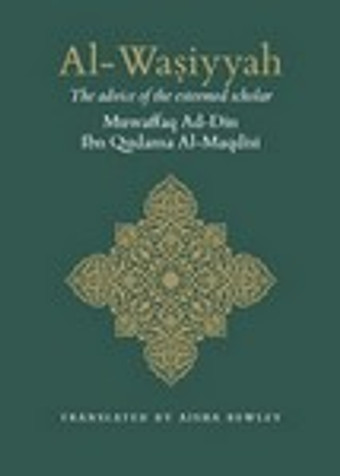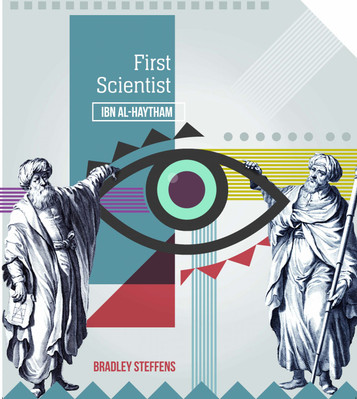SELECTIONS FROM THE FATH AL-BARI by IBN HAJAR AL-ASQALANI
Muslim Academic Trust (UK)
- SKU:
- BKMAT1004
- MPN:
- 9781902350042
Title: SELECTIONS FROM THE FATH AL-BARI by IBN HAJAR AL-ASQALANI
Author: Ibn Hajar al-Asqalani / Translated by Timothy John Winter (Shaykh Abdal Hakim Murad)
ISBN:9781902350042
Publisher:Muslim Academic Trust
The booklet intends to introduce non-Arabic speakers to one of the most seminal genres of Muslim religious literature, namely, the hadith commentary. It is surprising that no serious translations at present exist from this voluminous and influential body of writing, given that there are few hadith which can be understood adequately without reference to the often complex debates which have taken place concerning them between the scholars. These discussions have included investigations of the precise linguistic and lexicological meaning of the Prophetic speech, studies of the isnad, debates over the circumstances surrounding the genesis of each hadith (asbab al-wurud), and issues of abrogation by stronger or later hadiths or by Qur’anic texts. Sufyan ibn ‘Uyayna, the great early hadith scholar, used to remark: al-hadith madilla illa li’l-‘ulama’: ‘the hadith are a pitfall, except for the scholars.’ For this reason no Muslim scholar of repute uses a hadith before checking the commentaries to ascertain its precise meaning, context, and application.
The importance of this literature may be gauged by the fact that at least seventy full commentaries have been written on Imam al-Bukhari’s great Sahih. The best-known of these include al-Kawakib al-Darari by Imam Shams al-Din al-Kirmani (d. AH 786), ‘Umdat al-Qari by Imam Badr al-Din al-‘Ayni (d.855), and the Irshad al-Sari by Imam Ahmad ibn Muhammad al-Qastallani (d.923). However the most celebrated is without question the magnificent Fath al-Bari (‘Victory of the Creator’) by Imam Ibn Hajar al-‘Asqalani, a work which was the crown both of its genre and of the Imam’s academic career. It is appreciated by the ulema for the doctrinal soundness of its author, for its complete coverage of Bukhari’s material, its mastery of the relevant Arabic sciences, the wisdom it shows in drawing lessons (fawa’id) from the hadiths it expounds, and its skill in resolving complex disputes over variant readings. For Bukhari’s text has not come down to us in a single uniform version, but exists in several ‘narrations’ (riwayat), of which the version handed down by al-Kushmayhani (d.389) on the authority of Bukhari’s pupil al-Firabri is the one most frequently accepted by the ulema. This is, for example, why the new and definitive edition of the Sahih, through the authorized narration of the best-known hadith scholar of recent times, Shaykh al-Hadith ‘Abdallah ibn al-Siddiq al-Ghimari, uses the Firabri version (for this text see www.thesaurus-islamicus.li). Ibn Hajar frequently uses the Kushmayhani variant as his standard text, but gives his reasons, often in complex detail, for preferring other readings where these seem to have particular merit. In doing this he makes it clear that he is authorized, through the ijaza-system, for all the riwayat he cites.
About The Author
Imam Ahmad ibn Ali al-Asqalani (d. 852/1448), famously known as Ibn Hajar after one of his ancestors is arguably the best hadith scholar of the Mamluk period. The Dhahabi of his time and the amir al-muminin of the hadith scholars. Imam Suyuti says that he drank from the well of zamzam and prayed to Allah to give him more knowledge than Shams ad-Din adh-Dhahabi. He is the author of over 300 books some going into lengthy volumes. He died on Friday 28 Dhi al-Hijja 852 hijri and was buried in al-Qarrafa, Cairo, now famously known as the City of the Dead (madinat al-mawta).
About The Translator
Timothy John Winter (born in 1960), also known as Shaykh Abdal Hakim Murad, is a British Sunni Muslim Shaykh, researcher, writer and academic. He is the Dean of the Cambridge Muslim College, Director of Studies (Theology and Religious Studies) at Wolfson College and the Shaykh Zayed Lecturer in Islamic Studies at Cambridge University. His work includes publications on Islamic theology and Muslim-Christian relations. In 2003 he was awarded the Pilkington Teaching Prize by Cambridge University and in 2007 he was awarded the King Abdullah I Prize for Islamic Thought for his short booklet Bombing Without Moonlight. He has consistently been included in the "500 Most Influential Muslims" list published annually by the Royal Islamic Strategic Studies Center and was ranked in 2012 as the 50th most influential.
 Canadian Dollar
Canadian Dollar
















